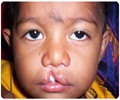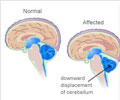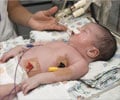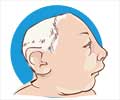Hypospadias
Hypospadias is a structural disorder of the
Hypospadias is a structural disorder involving the male urethra that occurs in approximately 1 out of every 300 male children. Sexual differentiation and urethral development begin in utero by about 8 weeks. The urethra is formed by the fusion of the urethral folds along the ventral surface of the penis. Hypospadias occurs when there is incomplete closure of the urethral folds. Different forms of
Clinical features
Newborns and young children do not have any serious complaints regarding the condition. Older children may complain of spraying of the urinary stream. Most of the patients complain of an abnormal appearance of the penis. Adults with curvature of the penis have trouble with
Clinical Investigation
Any degree of hypospadias could be a sign of feminization. Therefore, appropriate investigations are necessary to ensure that the patient is not a female. Genetic studies are useful in establishing the sex of the individual. Minimally invasive endoscopic surgeries can be conducted to evaluate the development of the internal male sexual organs and the urinary system.
Treatment of Hypospadias
Treatment usually involves surgery to correct the structural defect. The ideal age for surgery is two years. Care has to be taken to complete the surgery before the child starts school to prevent psychological trauma to the child. Different types of surgical techniques are available. The choice of a particular surgery depends on the patient’s condition and the surgeon’s decision. A majority of the patients will be able to pass urine freely and have a normal sexual life following surgery. Circumcision should never be done in such infants because the foreskin can be used for surgical correction.













